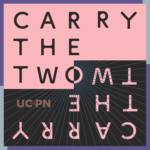Moon Duchin on Voting & Electoral Districts
Fair elections depend on fairly apportioned electoral districts. So how do we know if a district is constructed well?
Show Notes
If you live in the United States, have you already voted? If not, go vote!
The bedrock of American democracy is the idea of citizens voting for candidates to represent their interests. However, determining how to cluster voters into districts has always been a fraught topic, particularly when it comes to ensuring that minorities have representation. How can we create the most fair electoral districts? How can we use geometric topographical analysis to recognize gerrymandering strategies like “packing” and “cracking”? We brought in Tufts University mathematician and founder of the Metric Geometry and Gerrymandering Group Redistricting Lab Moon Duchin to help us discuss these pressing issues.
Find our transcript here: LINK
Curious to learn more? Check out these additional links:
Duchin’s collaboration about ranked choice voting: https://papers.ssrn.com/sol3/papers.cfm?abstract_id=3778021
Brief review of Duchin’s scientific paper: https://www.newamerica.org/political-reform/reports/evaluating-the-effects-of-ranked-choice-voting/the-future-is-proportional-improving-minority-representation-through-new-electoral-systems-gerdus-benade-ruth-buck-moon-duchin-dara-gold-and-thomas-weighill/
Quanta’s interview with Duchin: https://www.quantamagazine.org/moon-duchin-on-fair-voting-and-random-walks-20200407/
Follow more of IMSI’s work: www.IMSI.institute, (twitter) @IMSI_institute, (instagram) IMSI.institute
Follow Moon Duchin: https://math.tufts.edu/people/faculty/moon-duchin
This episode was audio engineered by Tyler Damme.
Music by Blue Dot Sessions.
The Institute for Mathematical and Statistical Innovation (IMSI) is funded by NSF grant DMS-1929348.